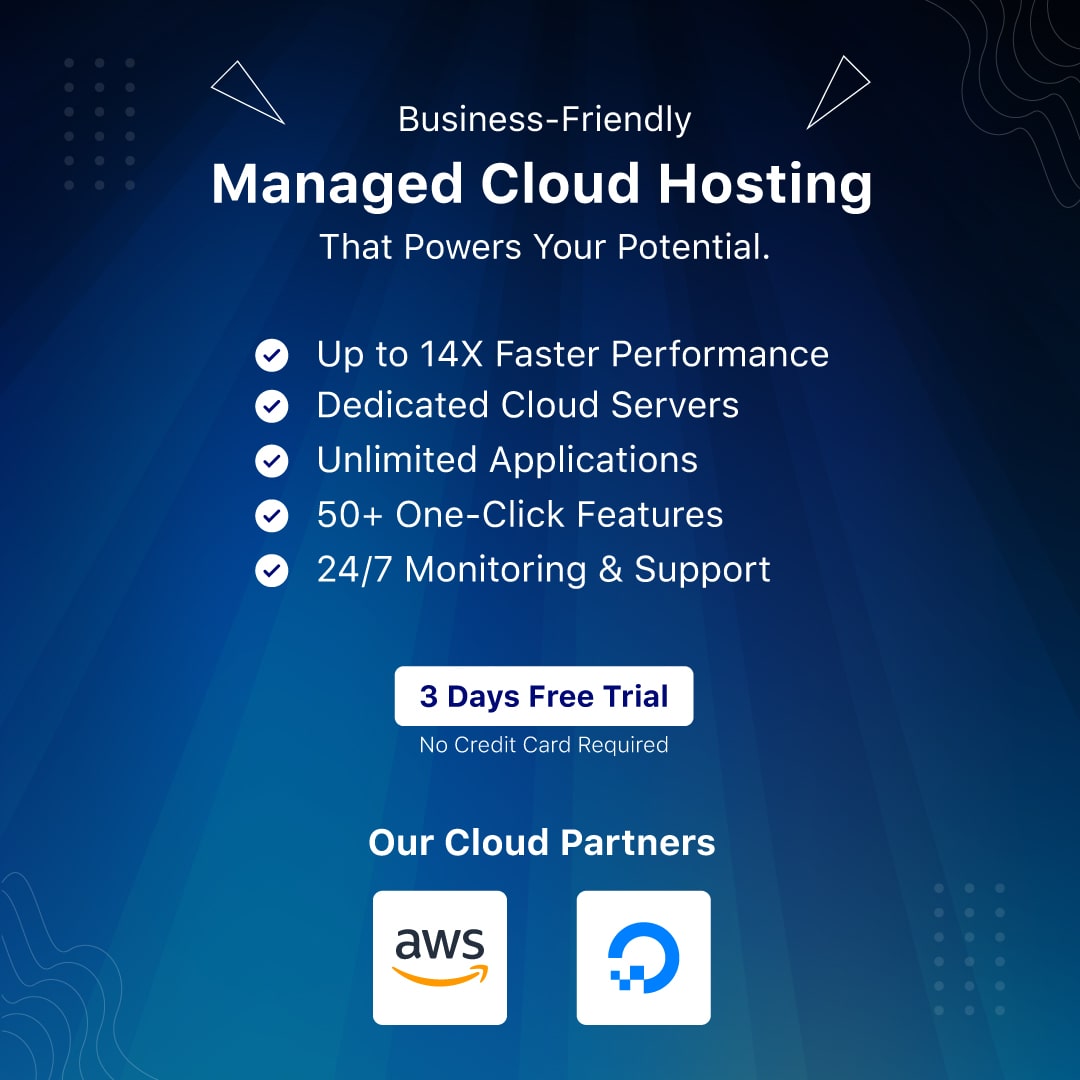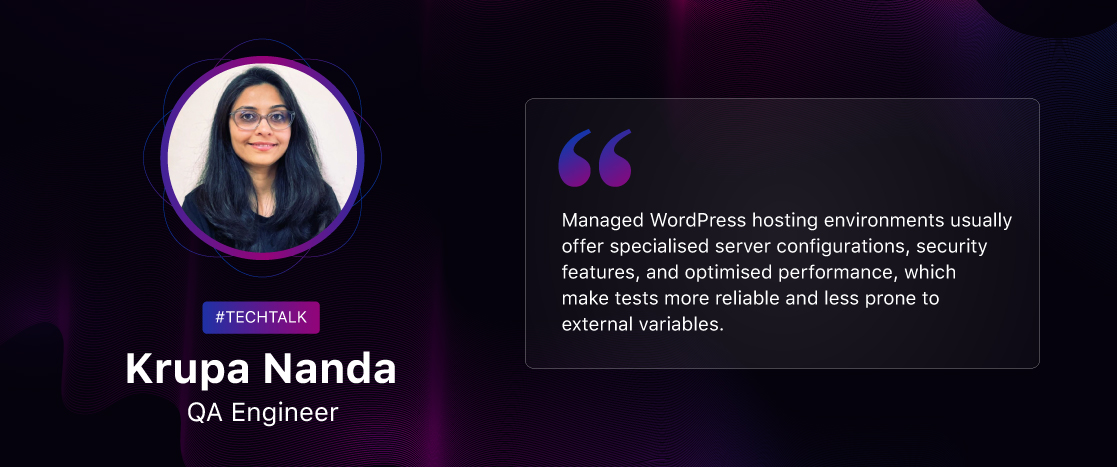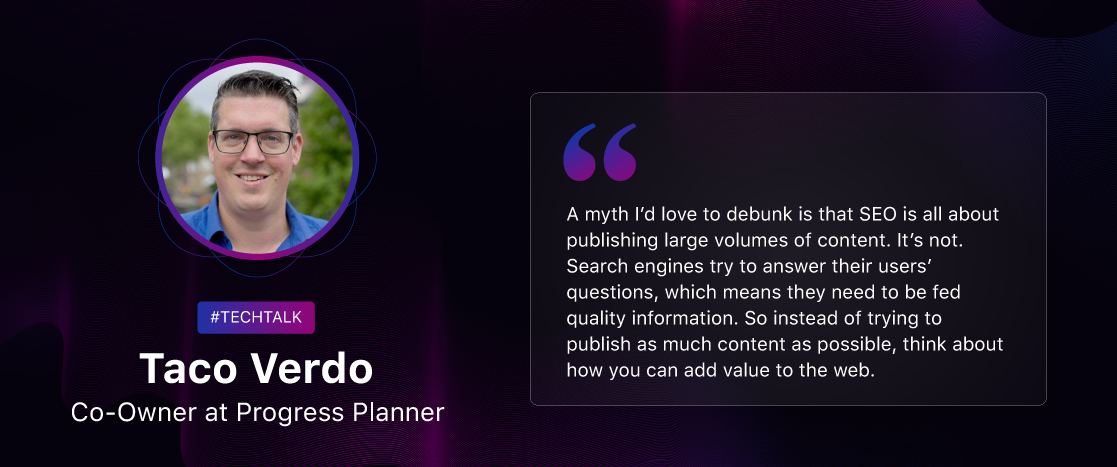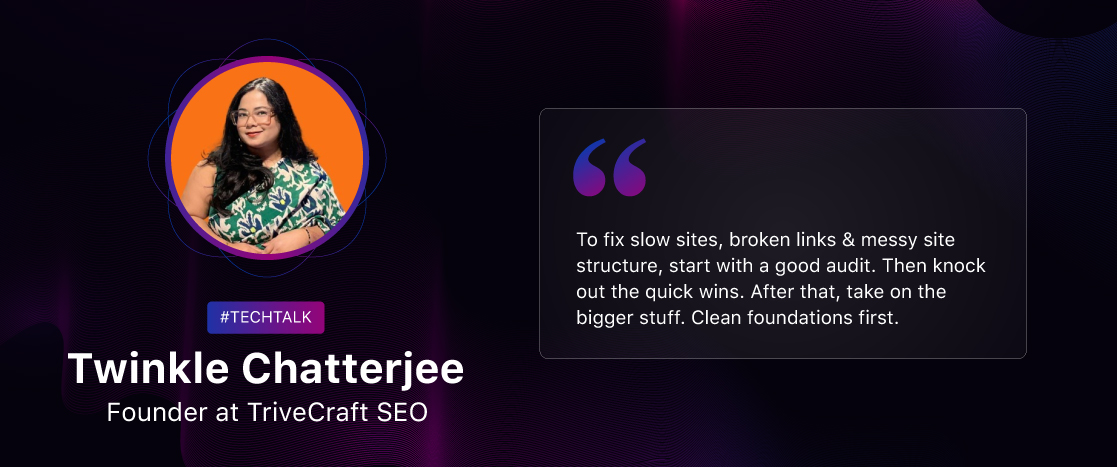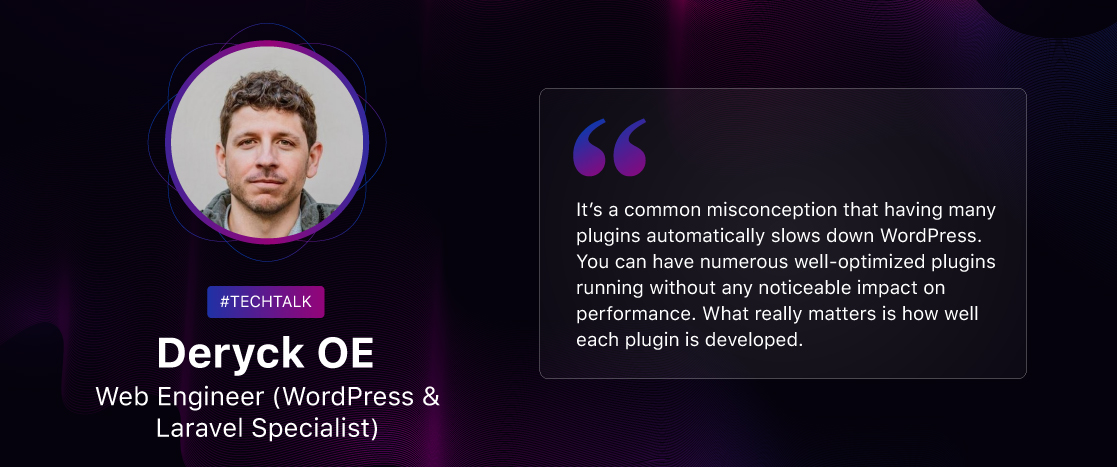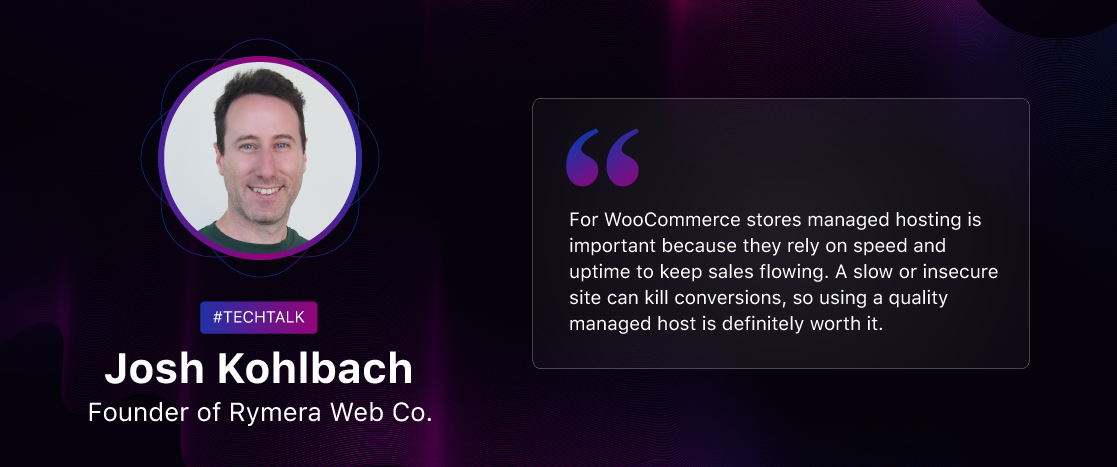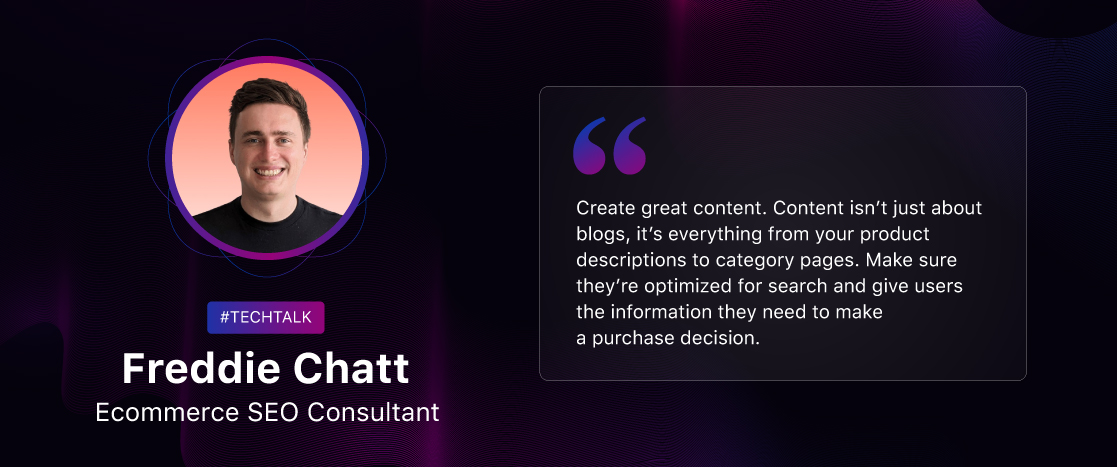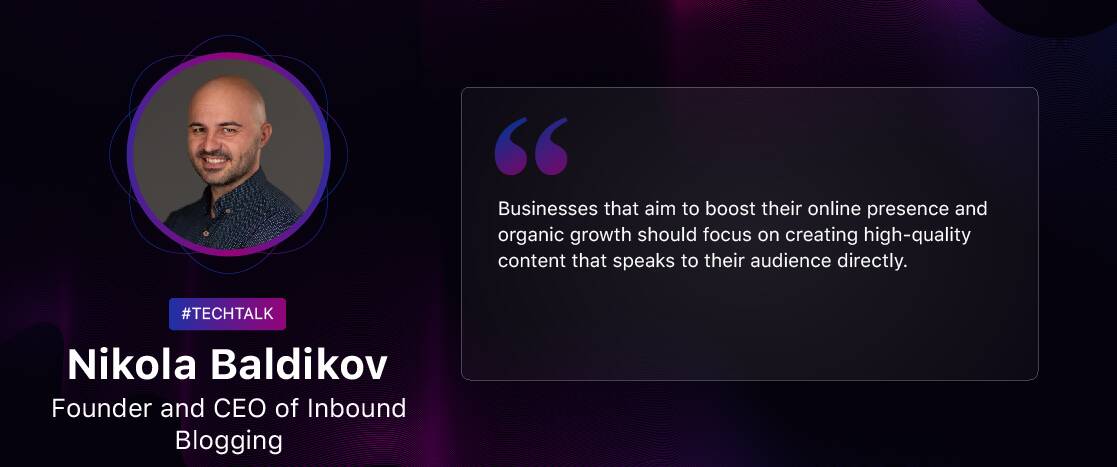
Devrims #TechTalk 054: Nikola Baldikov Talks About SEO, HARO Link Building, and Inbound Marketing
In a digital era where the battleground of businesses has largely shifted online, mastering the art of SEO has become more than just a necessity—it’s a game changer.
Nikola Baldikov is an SEO specialist with a penchant for the niches of SaaS SEO and HARO link building. Starting with an unexpected conversation with a friend, Nikola’s journey into the SEO universe was fueled by curiosity and a drive to dive into a world brimming with untapped potential.
This path wasn’t just about personal growth; it was about transforming a passion into a profession, leading to the inception of InBound Blogging.
At InBound Blogging, Nikola has channeled his expertise and vision into offering bespoke services aimed at magnifying businesses’ online visibility.
Through a combination of meticulous SEO audits, strategic content creation, and a knack for building quality backlinks, Nikola’s approach is about addressing the individual needs of each website while keeping a keen eye on the evolving landscape of SEO.
His philosophy is clear: success in SEO isn’t just about attracting eyes; it’s about engaging minds and creating connections. With a deep understanding of the intricacies of SaaS SEO and a commitment to thought leadership, Nikola stands as a beacon for businesses navigating the complex currents of digital visibility, offering insights and strategies designed to propel them to the forefront of their industries.
Devrims: Hey Nikola, thanks for being here today. Can you tell us about your journey in the field of SEO and how you became a specialist in SaaS SEO and HARO Link Building?
Nikola: Hello, and thank you for having me!
My journey into the realm of SEO began with no expectations.
A friend of mine was an SEO specialist back in the day. Talking to him occasionally made me realize that SEO is a field I want to explore and work in as a side job. It seemed so different from anything else I’d done before. Yet, it looked full of opportunities to seize.
So, my friend showed me some online courses that I could take. After I finished them, I continued learning about SEO until I realized I wanted to pursue a career in it.
One thing led to another. I started a job as a marketing manager for a company that was a pioneer in the instant messaging services industry. The experience I gained there plus my continuous self-learning ultimately resulted in building my expertise in SaaS SEO and HARO link building. As of today, those are my favorite aspects of SEO.
Devrims: What inspired you to establish InBound Blogging, and what services does your company offer to businesses seeking to improve their online visibility?
Nikola: I have always been a business-oriented person. That’s my spirit. I don’t want to follow in someone else’s footsteps. I want to make a path for myself. The only way I could play by my rules was by establishing my own company.
The idea to start a business had been brewing in my mind for seven years! It took a long time of preparation, planning, and waiting for the right moment, but that didn’t discourage me at all.
Devrims: As an SEO specialist, what are some common challenges businesses face in enhancing their organic rankings, and how do you help them overcome these challenges?
Nikola: From my experience, businesses often fail to optimize their websites for search engines. Most people concentrate on creating a great, really great, visually appealing website. Artwork! Well, that’s nice, but it would be nicer if more people could see it, wouldn’t it? Relatives and friends don’t count here.
My SEO optimization strategy always starts with conducting a comprehensive SEO audit and suggesting specific methods to make things right. Every site has its own issues, and making it SEO-friendly requires an individual approach.
Devrims: Content plays a crucial role in SEO. How do you approach content strategy development to ensure it aligns with both SEO goals and the target audience’s interests?
Nikola: Regardless of the size of a website, content is the heart and soul of the site. However, you must start from afar if you want to write a piece of quality content. Develop your strategy and build upon it. The first thing we do is research keywords and identify user intent.
After curating the keywords with the best search and business potential, we proceed with creating content briefs. Next, our team of talented writers creates human-first content that is later optimized with relevant keywords, entities, and internal and external links.
The final step is distributing content on social media and other appropriate channels. It’s important to distinguish search engines from social media. You need to pay attention to them both if you really want to reach your target audience.
Devrims: You’ve been actively involved in the SEO community and have contributed articles to several notable websites. Can you share some insights into the importance of thought leadership in the SEO industry?
Nikola: The importance of thought leadership in SEO cannot be overstated. It’s as fundamental as the ground beneath our feet.
There are so many SEOs nowadays. They write articles, guides, etc. with the sole purpose of driving traffic and attracting leads and customers. Basic SEO knowledge is available for free all over the internet. However, not everything is valid as many black-hat tactics are disguised as “tips.”
With this fierce competition, standing out from the crowd is a blessing and even more than that. It’s the evidence of your hard work and deep understanding of your subject matter. You become a trusted source of information and that’s what really matters.
Devrims: SaaS SEO optimization requires a unique approach. What advanced techniques do you leverage to optimize SааS websites for search engines and drive targeted traffic?
Nikola: Optimizing SaaS websites involves several factors that I prioritize. As I said earlier, keyword research and analyzing search intent are a must. It’s everything you need to understand what potential users are searching for.
Every single detail deserves proper attention and should be on point. Examples include your website’s meta descriptions, image alts, site speed, and the mobile user experience.
I enjoy writing reviews and comparisons between similar SaaS solutions. This type of content keeps readers engaged and naturally attracts backlinks. And quality backlinks make search engines trust your website and rank it higher.
Devrims: How do you measure the success of your SEO campaigns, and what key performance indicators (KPIs) do you prioritize when evaluating results?
Nikola: For sizing up your SEO efforts, it’s all about looking at the metrics. They can tell you exactly how you are doing online.
So, what’s on my radar? Well, I tend to keep tabs on essentials, such as organic traffic flow and rank gains for top keywords. You shouldn’t forget to check conversion rates and bounce rates as well. And of course, backlinks! You have to make sure they’re quality and remove spammy ones. These are pretty much the basics for keeping your SEO game strong.
Devrims: Let’s do a quick rapid-fire.
| Devrims | Nikola |
| Books or Movies | Both but let’s say “books” |
| Coffee or Tea | Coffee, definitely |
| Day or Night | Day |
Devrims: What advice would you give to businesses looking to enhance their online presence and maximize their organic growth?
Nikola: Businesses that aim to boost their online presence and organic growth should focus on creating high-quality content that speaks to their audience directly. The best case scenario is for this content to educate them and provide a solution to their problems.
I would also advise brands to engage with their communities, use SEO techniques to increase visibility and analyze their data regularly to see what works best.
Devrims: Managed cloud hosting has become increasingly popular for businesses seeking reliable and scalable hosting solutions. Can you explain what managed cloud hosting is and how it differs from traditional hosting options?
Nikola: A managed cloud hosting service entails a host taking care of all technical aspects of managing and maintaining cloud infrastructure.
The main differences between managed cloud hosting and traditional hosting lie in terms of price and scalability. Generally, with managed cloud hosting, the pricing is flexible and is based on usage. Moreover, you can upgrade or downgrade the resources of your website.
Devrims: We’d love to have a candid picture of your workspace.

Devrims: Who would you recommend us to interview next?
Nikola: As your next interviewee, I recommend Stefan Chekanov, the co-founder of Brosix, a secure instant messaging platform for business use. He’s a talented techie and one of the greatest people I’ve had the chance to work with. His story and insights will certainly capture you.
